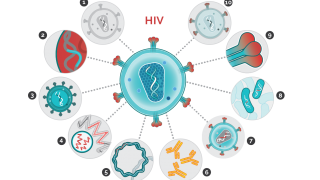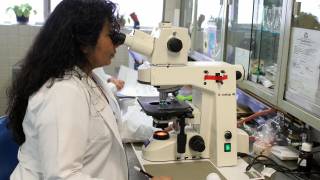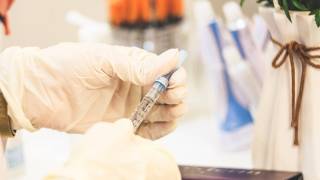COVID-19 Breakthrough Infection 28% Greater in People with HIV

According to findings from a new study led by researchers at the Johns Hopkins Bloomberg School of Public Health, people with HIV have a higher rate of breakthrough COVID-19 infections after vaccination than those without HIV.
In the study published in the peer-review JAMA Network Open on June 7, 2022, the researchers analyzed anonymized health records among nearly 114,000 people fully vaccinated with either two doses of mRNA vaccines or one dose of the viral vector vaccine in late 2021.
When comparing vaccine recipients with and without HIV, the researchers found that the chance of a positive SARS-CoV-2 test result or a COVID-19 diagnosis within nine months after full vaccination, though low, was 28% higher among people with HIV.
While the risk of breakthrough infection was 3.8% for the non-HIV group and 4.4% for the HIV group.
“These findings should alert all people with HIV to their greater risk of COVID-19 breakthrough and can inform official recommendations about COVID-19 vaccination for people with HIV,” says senior study author Keri Althoff, Ph.D., associate professor in the Bloomberg School’s Department of Epidemiology, in a related press release issued on June 7, 2022.
Currently, the U.S. Centers for Disease Control and Prevention (CDC) recommends that people who are “moderately or severely immunocompromised”—a category that includes people with HIV who are untreated or have low CD4 T-cell counts (<200 cells per microliter)—receive an extra dose of vaccine as part of their primary vaccination series, followed by a booster dose.
In total, the CDC suggests people with HIV get four doses of an mRNA vaccine.
Moreover, the study found an increased risk of a breakthrough infection with increasing immune suppression, measured via decreasing CD4 counts.
Those with CD4 counts that signal moderate immune suppression in people with HIV—in the 200-350 cells/mm3 range—had a statistically significant increase in the risk of breakthrough compared to people without HIV.
That suggests that people with HIV and moderate immune suppression may need to be included in the CDC’s guidelines for additional vaccine doses in the primary vaccination series.
“Policymakers who establish the guidelines should consider the benefits and risks of an additional dose of vaccine in the primary series not only for those with severe or untreated HIV but also include those with moderate immune suppression or even all persons with HIV,” says the study first author Sally Coburn Ph.D., a post-doctoral fellow in the Bloomberg School’s Department of Epidemiology.
Althoff and colleagues are following up with a study to determine whether vaccinated people with HIV have higher breakthrough infection rates and higher hospitalization rates after breakthrough infection.
For their study, Althoff and her colleagues pooled individual-level data from four health systems in the U.S. to create a study population named the Corona-Infectious-Virus Epidemiology Team (CIVET) cohort.
The CIVET cohort contains de-identified records from private health insurers, the Veterans Affairs health care system, and an academic-affiliated health system.
The researchers’ observations of differential breakthrough risk by vaccine type are consistent with studies showing lower effectiveness for Ad26.COV2.S relative to mRNA vaccines.
And among mRNA vaccines, more breakthroughs among those with BNT162 vs. mRNA-1273 primary series.
‘We also saw a steep increase in the rate of breakthrough infections in December 2021 related to the SARS-CoV-2 Omicron variant circulation.’
The study was funded under the North American AIDS Cohort Collaboration on Research and Design (NA-ACCORD, U01AI069918) from the National Institute of Allergy and Infectious Diseases, part of the National Institutes of Health. No industry conflicts of interest were disclosed.
Note: HIV vaccine development news is posted at PrecisionVaccinations.com/HIV.
PrecisionVaccinations publishes fact-checked, research-based vaccine news curated for mobile readership.
Our Trust Standards: Medical Advisory Committee
























